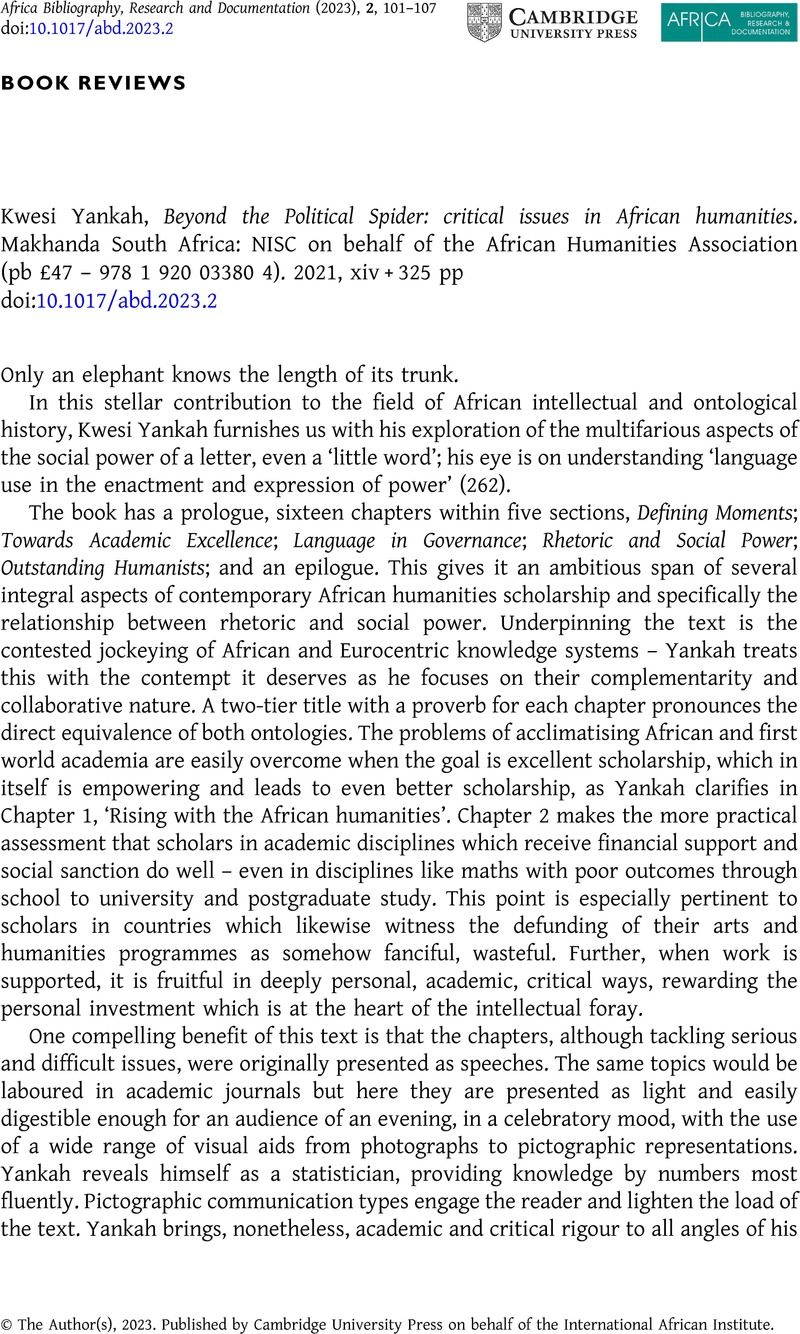No CrossRef data available.
Published online by Cambridge University Press: 15 November 2023

1 Salkey, A. (1969) ‘Political spider’ in U. Beier (ed.), Political Spider: stories from Black Orpheus. London: Heinemann.
2 Said, E. (1996) Representation of the Intellectual. New York NY: Vintage Books. See also Broodryk, C. (ed.) (2021) Public Intellectuals in South Africa: critical voices from the past. Johannesburg: Wits University Press.